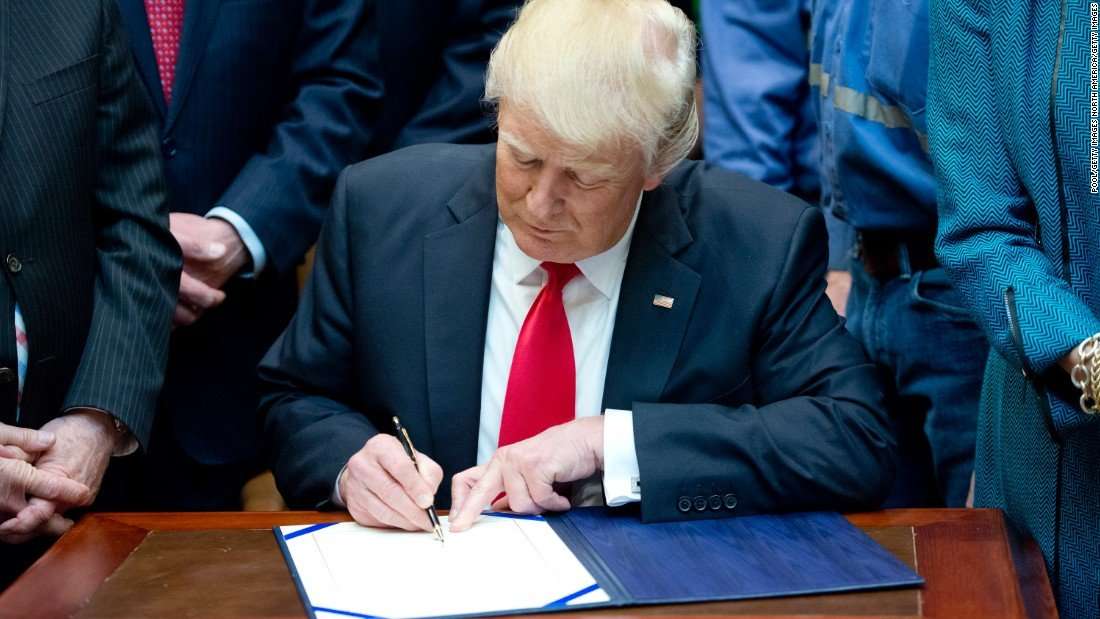Washington (CNN) President Donald Trump signed the "Right to Try Act" Wednesday, a measure aimed at helping terminally ill patients access drug treatments that are yet to be fully approved by the Food and Drug Administration.
Trump, at a White House ceremony surrounded by patients and families who will be affected by the legislation, said his administration "worked hard on this" but said repeatedly he didn't understand why it hadn't been done before.
The bill will give terminally ill patients the right to seek drug treatments that remain in clinical trials and "have passed Phase 1 of the Food and Drug Administration's approval process" but have not been fully approved by the FDA. Some opponents of the bill argue that the legislation won't change much but could have a detrimental effect on how the FDA safeguards public health.
Trump said he thinks "hundreds of thousands" could be saved as a result of the legislation.
"With the passage of this bill, Americans will be able to seek cures," Trump said adding they will finally be given "the right to try."

Aearion30 on May 30th, 2018 at 22:33 UTC »
I was born without the lining on my lungs. A drug called Surfactant was out on a trial basis and I credit that with my survival.
Edit:
https://www.upi.com/Archives/1991/07/16/Cow-lung-extract-to-help-premature-infants/2997679636800/
I was born in '88.
Threeknucklesdeeper on May 30th, 2018 at 20:22 UTC »
Both of my parents have died from cancer. I fully support this. When you know you aren't going to get better with the options you have then you are more than willing to try something different.
Theocletian on May 30th, 2018 at 20:17 UTC »
For those who are interested, currently in the industry we have something called "compassionate use" which is enacted for life-saving (or drastically life-improving) drug candidates to allow patients to take experimental drugs.
This is done in parallel with human clinical trials but poses a risk to the drug companies because often these patients do not meet the criteria for a standard clinical trial. While it entails quite a bit of risk, many compassionate usage patients have no other choice. The risk to the company is that if anything goes wrong, that could be a show stopper in the development of that drug even if the kinks can be worked out later. On the other hand, if everything goes well, the company cannot use the data for their clinical trial because compassionate usage does not meet the standards set by the FDA and other authorities.
Not saying all drug companies are saints nor that this is a good option for everyone, but it is an option especially if you have a rare disease.